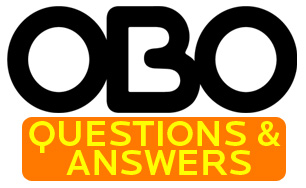
Question:
What is the best method of countering an attacker who intercepted in mid field and is heading straight for the centre of the D?
Answer:
I’m assuming you’re talking about counter attack breakaways from your question. A lot of this comes down to decision making and the skills associated with playing big slide tackling and I’ve included links to two earlier tips I did on them on the Keeper Resources page and included a pertinent section below:
http://blog.obo.co.nz/1999/10/20/slide-tackling/
A forward with the ball alone at the 25 can be a pretty intimidating site for a keeper. By the same token, a keeper poised and ready at the top of the circle can be equally intimidating. This takes us back to our plan. Before a forward can score, he’s got to get into the circle. As a keeper, that gives me a boundary that if successfully defended, never allows a shot to happen. As the forward enters the circle, elements that give him the advantage are time, vision, control of the ball and speed. Those elements can also work against him. It’s hard for a forward to have vision and control of the ball. When he’s got vision, typically that’s when the ball is off his stick. When he’s got speed, the ball is either on his stick and his head is down, or the ball’s off his stick. Those are the times when a keeper can win the situation.
http://blog.obo.co.nz/2004/01/13/decision-making-and-team-defense/
To add on, a keeper can win a one v one situation without making a save. Winning comes from making a save, delaying the forward until a defender can get back into the play or forcing an opponent to shoot wide. A lot of what will work for you will depend on the strengths of your game.
Personally, if faced with an opponent on a breakaway I want to take the initiative and start by contesting entry into the circle. I want to bait the forward to come into the circle where I can use all my goalkeeper privileges (full body to make save) and tackle or channel. If I’m already at the top of the circle a forward can play the ball around me outside of the circle and out run most keepers to walk the ball in. If I’m three to four yards from the top I can step up to engage as the forward enters the circle and use my whole body. I don’t want to come out just for the sake of coming out.
Tackling and channeling require good footwork to stay in the play. I don’t want to commit to slide tackling until I’m confident of making the tackle or I can no longer stay in the play. If I have a chance to take a forward to a side, I prefer to take them to my right where I can get more length by playing on my front stick, but having said that if there’s a side that will give my defender a better chance to recover I want to take the opponent there.
In taking on a forward, I want him to have to think about me and not a clear shot. If I can slow him down, if I can get his head down, these are all good things. I don’t want to be charging out for the sake of charging out and that’s where engaging distance and balance are key. I don’t want to get wrong-footed. I want to try to keep my shoulder between my feet as I take on. If my shoulders get outside my feet, my weight is committed in that direction and I’m screwed. Similarly, I want my steps to be short and quick so I’m able to keep my weight on both feet to stay with the play. If I take, big long steps I cover ground but a good forward will go at the foot you have your weight on since you can’t move it. I like to play with my hands down around my knees if I’m taking on. This keeps my center of gravity low and makes it easier to get down when I have to.
Trial and error are really the best way to figure out the “best way” for you to play situations. The nice thing about the internet is you can learn from other keepers trials. The EHL ( http://www.ehlhockey.tv/#/home/NjQxNA==) uses shootouts in their tie-breakers and are great for seeing different 1vkeeper strategies.
good luck,
Jon
